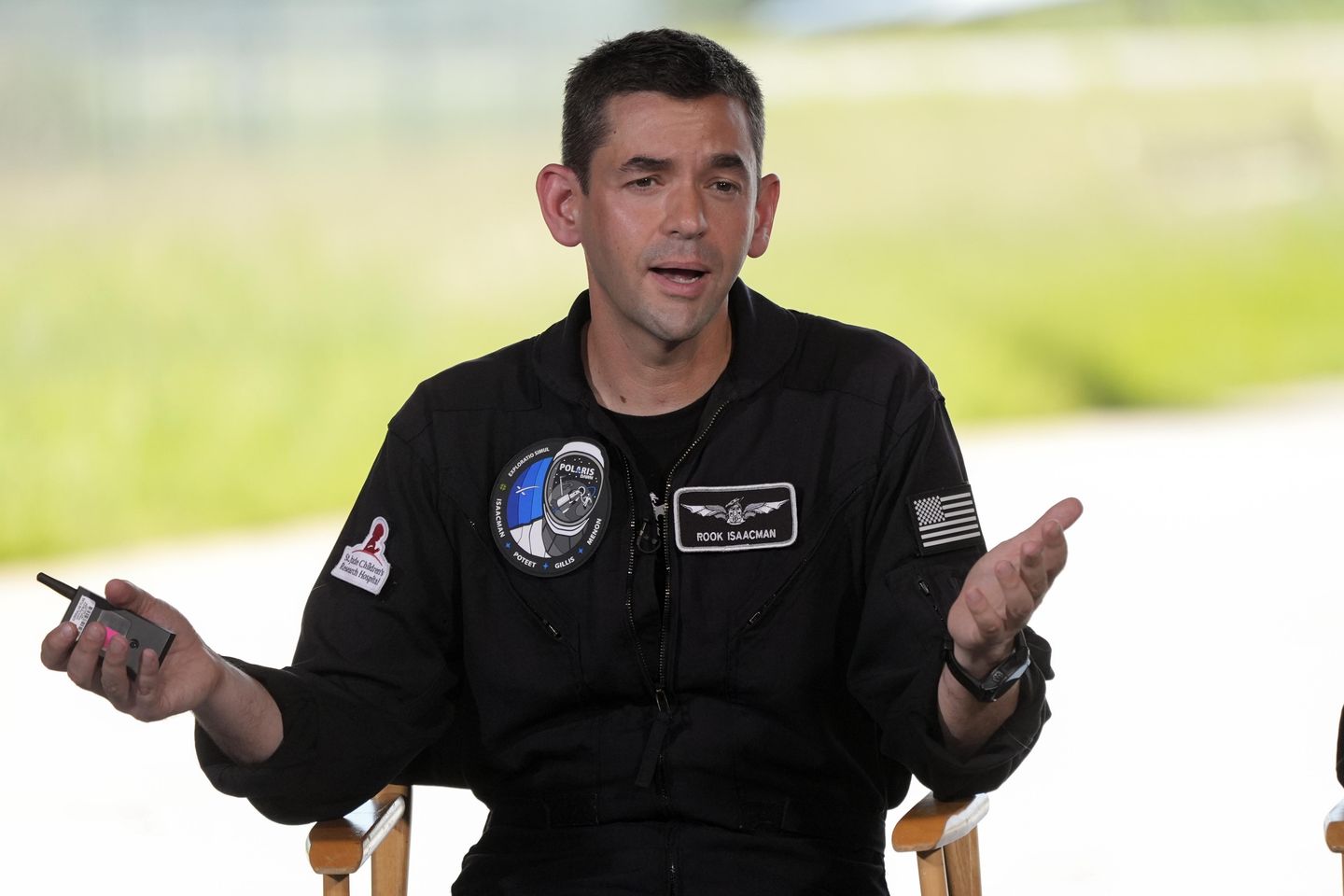
President Trump late Saturday said he is pulling the nomination of billionaire and private commercial astronaut Jared Isaacman to lead NASA, citing Mr. Isaacman’s “prior associations” and promising to name a new choice soon.
Mr. Trump posted the surprise announcement on Truth Social reportedly learning that Mr. Isaacman, founder of the leading payment processing company Shift4 and a close ally of Elon Musk, had previously made political donations to Democratic candidates.
The withdrawal of Mr. Isaacman’s nomination adds uncertainty to the Trump administration’s broader space policy at a crucial moment on a host of issues, including the development and implementation of the Golden Dome missile shield, which will rely heavily on space-based interceptors, satellites, sensors, and other assets in space.
It also could be a major disappointment for some leaders in the commercial space industry who viewed Mr. Isaacman’s appointment as a signal that the administration intended to more closely align the government and private sector in U.S. space exploration — and potentially open up major investment opportunities in space for venture capital firms and other private companies.
The administration has vowed to maintain American dominance in space amid a major push from leading rivals such as China to dramatically ramp up their own space capabilities, both civilian and military. Mr. Trump said that U.S. dominance will continue under another NASA administrator.
“After a thorough review of prior associations, I am hereby withdrawing the nomination of Jared Isaacman to head NASA,” Mr. Trump posted on social media. “I will soon announce a new Nominee who will be Mission aligned, and put America First in Space. Thank you for your attention to this matter!”
In a post on X, Mr. Isaacman thanked Mr. Trump for what he called an “enlightening” and “thrilling” journey through the confirmation process.
“I have not flown my last mission — whatever form that may ultimately take — but I remain incredibly optimistic that humanity’s greatest spacefaring days lie ahead,” said Mr. Isaacman, 42. “I’ll always be grateful for this opportunity and cheering on our president and NASA as they lead us on the greatest adventure in human history.”
The New York Times reported that Mr. Trump recently learned Mr. Isaacman donated to several Democratic senatorial candidates during the past two election cycles, including Sen. Mark Kelly of Arizona and former Sen. Bob Casey of Pennsylvania.
The withdrawal of Mr. Isaacman’s nomination came just one day after Mr. Musk, who headed the unofficial Department of Government Efficiency, or DOGE, held a final media appearance alongside Mr. Trump before leaving Washington. Mr. Isaacman has worked closely with Mr. Musk and his leading space and rocket company, SpaceX.
Last September, Mr. Isaacman made headlines with the Polaris Dawn mission. With three other astronauts, Mr. Isaacman left Earth aboard a SpaceX Dragon spacecraft for a five-day mission. That mission reached a reported altitude of about 870 miles, the highest altitude reached by a human since the Apollo days.
The Polaris Dawn mission made history as the first commercial spacewalk. The spacesuits worn by Mr. Isaacman and his fellow astronauts were designed and funded by Mr. Musk’s SpaceX.
Such missions look to be a key piece of the future of American space exploration.
At last December’s Spacepower 2024 conference in Florida, Mr. Isaacman sketched out a near future in which wealthy Silicon Valley financiers fund more ambitious endeavors, perhaps including the mining of metals, minerals or other resources in space.
“Is mining potentially on the table?” Mr. Isaacman said in a keynote speech at the event. “I have no doubt that private industry, with your PE funding or VCs, going to get the dollars and cents to go out and experiment on that, and it will be affordable enough to do it, because there will be several launch providers you can talk to and be able to attempt it. So again, I think it just comes back to the space economy as a whole.”
It is widely expected that Mr. Trump’s next pick to lead NASA will share that view of the interplay between the government and private industry.

















